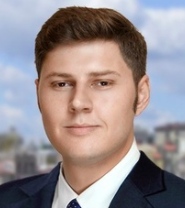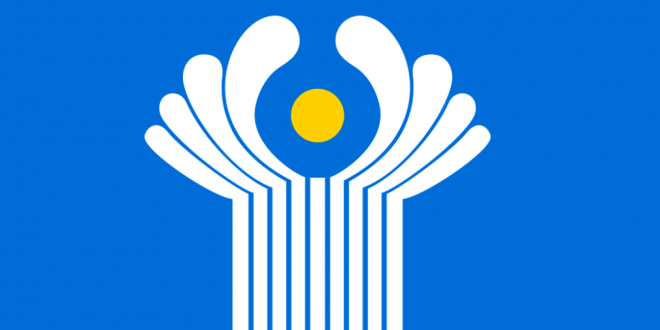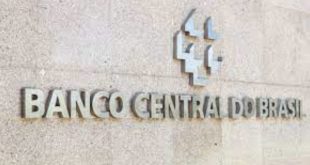
Market developments in the CIS region have shot to the forefront of the industry’s agenda, as an intense July saw Ukraine approve its Gambling Law mandate, the Russian Duma announce an overhaul of sports betting laws and taxes, whilst Uzbekistan forms a counsel for the development of a national lottery.
At the coalface of rapid developments, Ilya Machavariani, Head of Russia and CIS Gambling and Gaming Practices for international law firm Dentons, tells SBC that stakeholders must acknowledge and understand intricate cultural and geopolitical dynamics which shape how legislations are formed and adopted.
___________________
SBC: Ilya thanks for this interview. Leading Dentons Eastern European practice group you have been a very busy man under lockdown. Why has this been a period of ‘movement and disruption’ for the CIS region with regards to adopting new gambling legislations?
Ilya Machavariani (Head of Dentons CIS ): I believe that existing movements in this region is a part of the bigger process of governments of jurisdictions around the world finally realising that it is impossible to combat offshore gambling and the only way forward is to regulate it.
Zooming into CIS, I also believe that it was a matter of time until the regulations here will catch up with incredibly talented and proficient gambling practitioners originating from this part of Europe. It was imminent that all this expertise will finally leak out to high cabinets.
To add to that, I also think that current international attention to these markets is partly a result of an existing knowledge gap between international betting and gaming community and ex-USSR territories. Honestly speaking, sometimes I have a feeling that amount of non-CIS betting professionals’ knowledge about more conventional markets surpasses their understanding of markets over here to the great extent. There are perfectly legitimate reasons for that: a language barrier, cultural, business, and political differences requiring anyone entering this territory to adjust to them, unclear regulations (sometimes) and general otherness of these markets.
SBC: The CIS is formed of many young nations, redeveloping their commercial structures and identities. How is this dynamic going to shape how betting laws are adapted and interpreted?
IM: I would not say that CIS nations could be qualified as “young” anymore. Decades passed since the fall of communism and these decades were really eventful and each nation pursued its own way during these years.
Consequently, each nation came up with and preserved its own approach to the betting laws. Some prefer to use neighbour’s legislation as a template for its very own laws (for instance, curios researcher might see that Kazakhstan’s betting legislation is relatively close to a Russian one), some are looking for their unique way (e.g. Russia, Belarus, and Georgia, which have created legislation aimed at attracting foreign investments), some decide to look at well-known jurisdictions and mix foreign approach with local trends and ideas (e.g. Ukraine, Uzbekistan).
SBC: Observing the Ukraine which is governed by a novice first-time government. Can it really, therefore, fulfil a full-scale gambling agenda by the end 2020?
IM: I am always cautious about timelines when it comes to Ukraine as I do not want to create additional heat around the topic that is already really hot – my main desire is to keep everyone informed with the most accurate information possible in the circumstances; nevertheless I believe that if Ukrainian Gambling Commission (that is still yet to be formed as of July 2020) would accept first applications this year, it would be simultaneously encouraging and a bit surprising.
If this scenario presents itself then Ukrainian government deserves an “A” for its efforts to go all the way through from complete gambling ban to the regulated market in less than two years.
SBC: Are CIS states, therefore, conflicted in whether to adopt an open market framework or subsequently choose a monopoly structure for their gambling laws?
IM: I would not say that there is a conflict or even any dispute in terms of this choice. As the reasoning behind adoption of gambling legislation is usually revolves around the governments’ attempts to increase revenues, it is counterproductive (to say the least) to create a regulated, but monopolised betting market.
Of course, it may be argued that this approach allows the government to keep the industry on a short lead, but, in my opinion, such method is really blunt and simple; it is also might show lack of initiative from the government’s side, which is always discouraging.
To add to that, as mentioned earlier, this territory is a homeland for lots and lots brilliant specialists who are eager to familiarize governments with a modern state of the industry, latest trends and best approaches that could be used to establish an open, competitive and fair market (provided that such brilliant specialists do not feel that they would be able to control this monopoly).
SBC: Criticism has been lobbied at CIS states for not following western protocols in adopting gambling legislation… Is this a fair narrative?
IM: This is a fair narrative indeed. But the reasons for this narrative might be surprising for you as this approach of CIS states has nothing to do with a possible biased point of view of the ex-Soviet governments on the western models.
I told you before about my feeling that there is a knowledge gap between the international community and post-soviet markets, but this is not the only existing gap of such sort. Sometimes, when governments in the CIS are starting to legalise gambling or modify outdated legislation, they are not actively seeking help or assistance from the industry. It is really unusual for CIS states to conduct official consultations or engage outside specialists that could bring valuable expertise to the table.
On the contrary, Ukraine and Russia are going a different way here as Ukrainian authorities have engaged a vast network of lawyers and gambling executives in order for them to assist in the preparation of the gambling law; in the meantime, Russian government has formed a separate expert group that has representation from each and every level of the Russian market – operators, regulator (and other involved state bodies), self-regulated organisations (their purpose is to oversee operators), lawyers (such as myself) and payments organisations.
On reflection, latest changes to the Russian laws were not reviewed by this expert group and were adopted without any consultations with the market – in other words, mechanism of involvement of experts still requires some modifications (but I hope that Russia is getting somewhere).
Despite Ukrainian and Russian efforts, the usual outcome of government’s passive approach is that preparation of the gambling legislation falls down on the shoulders of people who might be not familiar with gambling industry at all; therefore it is really hard to criticize them for not knowing latest Maltese or UK or European developments.
SBC: So finally, following months of Lockdown, how do you see CIS developments playing out – what timelines and developments should industry stakeholders anticipate?
IM: Well, I do not want to chart CIS states as all of them are important for me and I really care for each country’s movement towards modern gambling market, but if we would focus on the legislative developments in this region, I would say that you need to keep a weather eye out for further developments and market opening in Ukraine (late 2020 – early 2021), first steps towards betting legalisation in Uzbekistan (late 2020 – mid-2021; this market might compete with Ukraine if the course of legalisation stays the same), and unexpected changes in Russia (literally anytime when the State Duma is not in recess).
_____________________
Ilya Machavariani – Dentons – Head of Russia and CIS Gambling and Gaming Practices










